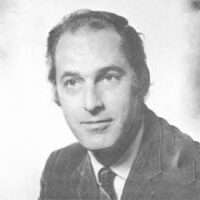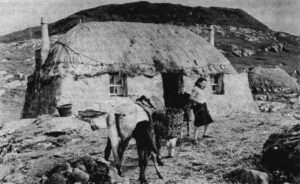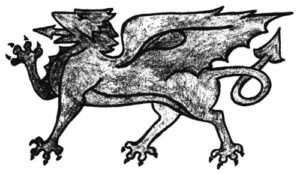J. Scott Keech
- 1970

Fellowship Title:
- Minority Groups in the Unided Kingdon
Fellowship Year:
- 1970

Scotland I – The Highlands
Dec. 13, 1970 Except for signposts, there is no obvious indication that the border between England and Scotland has been crossed. Countryside, roads, buildings and towns look the same. Even Edinburgh, the capital of Scotland, does not feel noticeably Scottish. There are plaids and tweeds and lots of woolen goods in shop windows, the Scottish flag flies, the museums display Scottish memorabilia, and the postboxes are labeled “ER” not “E II R” because only one Queen Elizabeth has reigned over the Scots. But walking around the city brings no surprises, no feeling that this or that is especially Scottish. Driving on to the north, beyond Perth, the Highlands begin, and so does a feeling that this indeed is different. The scenery is as spectacular as the tourist brochures claim, but that is not the cause: “green and pleasant land” has long since proved a wholly inadequate description of the startling contrasts and sometimes wild beauties of British scenery. But mile after mile it was scenery and sheep, sheep and scenery – and no people.
Race and Racism in Britain
Race is almost as uncomfortable a fact of life in the United Kingdom as in the United States. In 1967 a report, Racial Discrimination in England, sponsored by P.E.P. (Political and economic Planning) provided concise, sophisticated documentation of discrimination in employment, housing and automobile insurance. One part of the survey tested discrimination directly with teams comprising a native Englishman, a Hungarian immigrant and a West Indian immigrant. They were similar in qualifications or needs, age, height, and dress. Both immigrants spoke English fluently, though with slight but distinct accents. In each test, the West Indian went first, then the Hungarian, and finally the Englishman, and none knew of the others’ experiences until after the test ended. The results were striking. EMPLOYMENT: The West Indian was discriminated against in 90% the Hungarian in 43%, of the places where the Englishman found a positive response. HOUSING: After excluding places advertising “No Colored” and the like, the West Indian was refused two-thirds, the Hungarian 6%, of the places open to the Englishman. INSURANCE: Where the Englishman was offered

The Red Dragon – Nationalism In Wales
In Sept, 1970 “Some of you guys who got yourselves so wrapped up in the Welsh language might stop back and remember that…what matters is what the little lady spends in the butcher’s shop rather more than the bloody language.” George Brown, Deputy Leader of the Labor Party, at a campaign meeting in Bangor, Wales. As electioneering, the statement left something to be desired, but not by Mr. Brown’s opponents. In its own terms, it presented a barn door of a target. Unemployment in Wales, as in the whole United Kingdom, went up steadily under the Labor government, maintaining a rate about double that of England alone. And real income per capita in Wales is five to ten per cent lower then in England. As one nationalist candidate commented: “To use George Brown’s own gutter language, where is the bloody money?” As for that phrase about “the bloody language,” it is going to live long in history, at least among nationalists. They can say: “Other politicians may not come right out and say so, but
